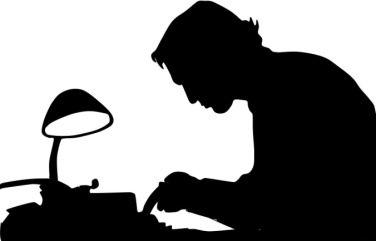
Mark Twain once said, “I like a good story well told.”
We’re with you there, Mark. Whether that story comes in the form of a book, a news article, or over a drink with a friend after work, stories are pretty much universal. It’s the “well told” part of this statement that interests me most, though. What exactly does that mean? Regarding fiction, is there an optimal way to tell a story well? I think not.
Linear, cause-and-effect narratives are fine. Third-person omniscient narration is cool. And the Hero’s Journey works. But when you find a story told in a weird, out-there sort of way, it can really make things feel fresh.
What am I talking about here? I’m talking about present tense. I’m talking about all-dialogue. I’m talking about non-linear narratives. Let me give you a few examples.
The Shining Girls
I just got finished reading The Shining Girls by Lauren Beukes. It’s about a woman who survives a brutal attack by a time-traveling serial killer, and then devotes the rest of her life to stopping him. Not one for the kiddies.
It’s not the typical cut and dry, one-scene-into-the-next thriller. First thing: it’s written in the present tense, which is atypical for genre fiction. Present tense works perfectly with this story, though, because it gives everything a sense of immediacy. It’s as if the events of the novel are unfolding before us in real time, sort of like a news story (Beukes was a freelance reporter for a while, by the way).
Furthermore, present tense works best with quick sentences and short chapters, which we see much of in The Shining Girls. Beukes writes her chapters in quick hits, like jabs to the mouth. We zoom in on one character, end on a resounding note, then move on to the next. An economical yet powerful approach.
Could Beukes achieve the same effect using traditional narrative styles? Maybe, but I don’t think it would’ve been quite as effective. There’s no distance to the events with present tense—it’s happening instead of having already happened.
Your Fathers, Where Are They? And the Prophets, Do They Live Forever?
Another weird narrative comes in David Eggers’s Your Fathers, Where Are They? And the Prophets, Do They Live Forever? The plot: an unremarkable man kidnaps an astronaut in order to ask said astronaut many existential questions.
…That probably already sounds weird. It gets weirder.
Eggers’s book is written entirely as dialogue. It’s sort of like a stage play in that sense, only without even so much as stage direction. Like in The Shining Girls, this makes things move quickly. Though it’s a roughly 200-page book (which isn’t super long to begin with), it reads as though it’s half that length.
The best part about this all-dialogue style is the way it puts the characters’ voices right in your ear. After a while, you can imagine distinct accents and inflections for each of them. Furthermore, the dialogue takes on a special weight, because without a description to back it up, every line must do more to advance the story. In addition, the dialogue must also perform such mundane actions as orienting the reader in the space, a function usually performed by description.
Slaughterhouse-Five
The last weird narrative style I’d like to discuss is that of Kurt Vonnegut’s Slaughterhouse-Five. Perhaps the weirdest of the three, Slaughterhouse centers on the life of Billy Pilgrim, a WWII veteran who’s trying to adjust to postwar life. Which is tough when you’ve become “unstuck in time” and subsequently cycle through different moments of your life.
Billy jumps from moment to moment, from the war to troubled times at home to an alien planet, all of them years apart. The narrative cuts between all these times and settings in an unpredictable pattern—definitely not the style of most books.
But the genius here is that we become disoriented, just like Billy. If the story was told in a normal, linear manner, we’d know exactly when we are in time, i.e. the events on page 100 are happening after those on page 50. As written, though, we’re just as unstuck in time as Billy. It’s an effect that couldn’t be achieved otherwise.
So What’s the Best?
So what makes a good story well told? Like any good question, there’s no single answer. It might be a classic structure, or it might be something unusual. Whatever the structure, it’s not just what happens that makes a story great—it’s the way in which it happens.
Kyle A. Massa is a speculative fiction author living somewhere in upstate New York with his wife and their two cats. He has written two books and numerous short stories, both published and yet-to-be published. He enjoys unusual narrative structures, multiple POVs, and stories about cats.















